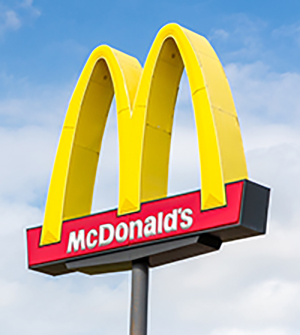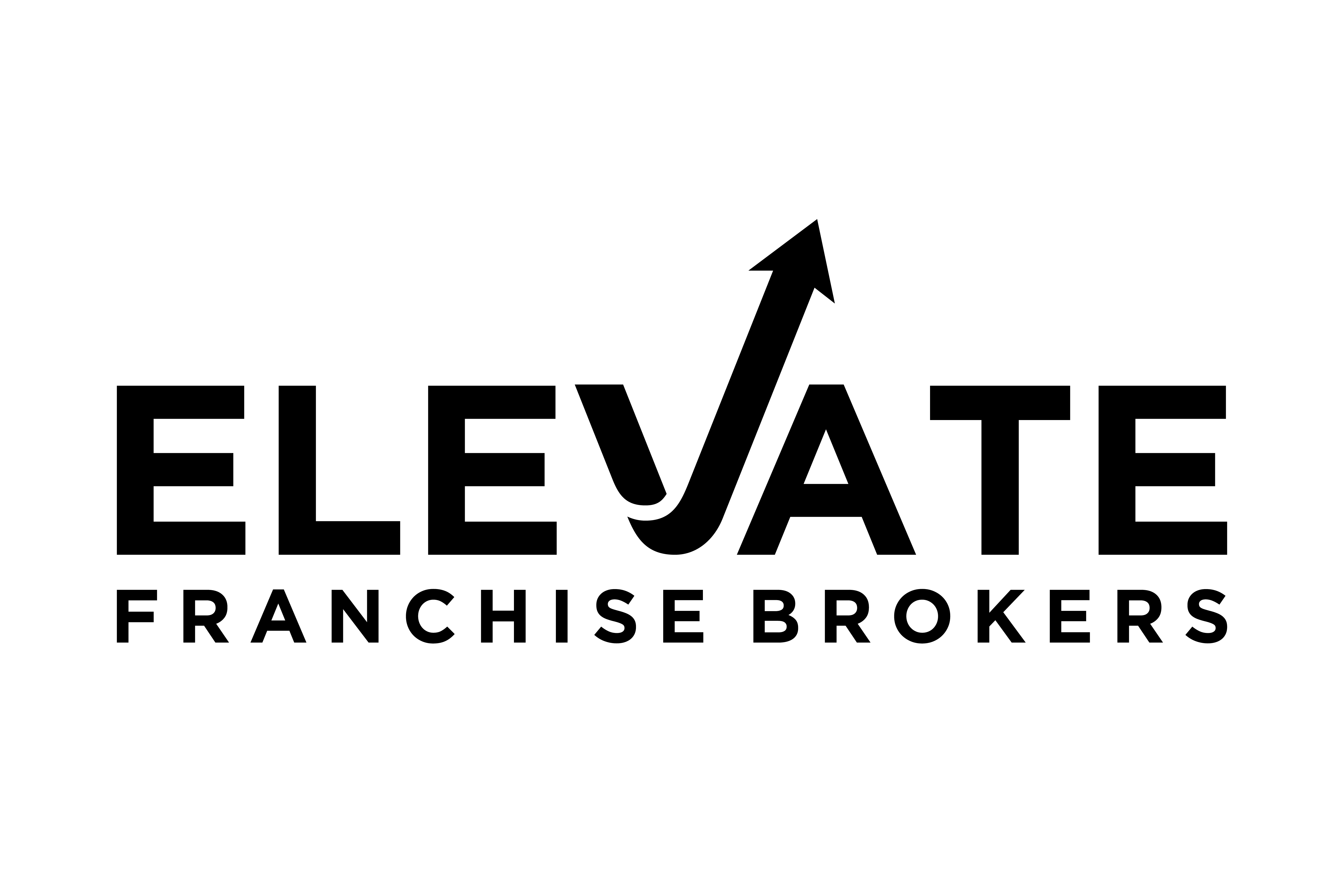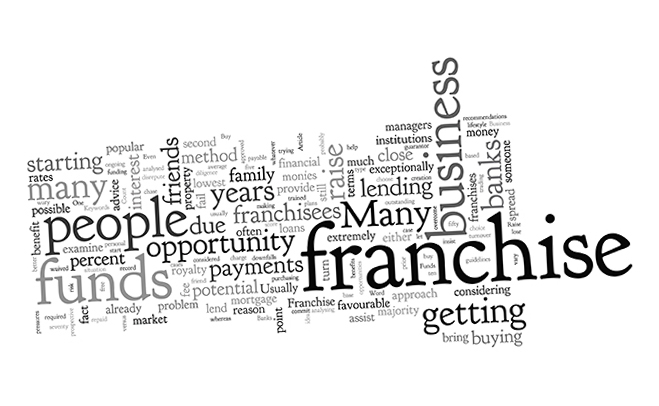Something most people don't know is how to buy a franchise. Or answer other questions like how much will I make with a franchise, what franchises can I buy, or what does a franchise cost to buy? But, owning a franchise can be a lucrative and fulfilling business venture for anyone who wants to own and operate their own business.
With thousands of franchise brands in existence, how to buy a franchise can be a daunting task.
To answer some of these questions, we will cover these topics in this article:
- What is a Franchise?
- Top Motivations for Owning a Franchise
- Advantages of Owning a Franchise
- Challenges of Owning a Franchise
- How to Buy a Franchise and Who Can Help Me?
- What are the Costs of Owning a Franchise
- How to Fund Your Franchise
- How Much Will I Make with a Franchise
- What are the Steps to Buying Franchise
What is a Franchise?
 When considering a franchise, most people think of restaurant companies like McDonald's, Chick-fil-a, or Crumbl Cookies. But there are thousands of other franchises in dozens of markets like real estate, home decorating, staffing, home services, pet care, senior care, fitness, and more.
When considering a franchise, most people think of restaurant companies like McDonald's, Chick-fil-a, or Crumbl Cookies. But there are thousands of other franchises in dozens of markets like real estate, home decorating, staffing, home services, pet care, senior care, fitness, and more.
A franchise is a business model in which an individual (the franchisee) purchases the right to use a company's name, products, and processes to operate a business. The company (the franchisor) provides the franchisee with training, support, and materials to succeed. For this, the franchisee pays an upfront franchise fee and ongoing royalties.
The interests of both the franchisee and franchisor are primarily mutual. The franchisee wants to run a successful business and earn a good income. The franchisor wants the franchisee to succeed because the franchisor relies on ongoing royalties to fund its business and meet its financial goals.
Franchising is a highly regulated business to protect buyers. The Federal Trade Commission (FTC) regulates franchisors, including the information they must disclose before you buy their franchise. This is done through the Franchise Disclosure Document, which the franchisor must provide to the prospective owner at least 14 days before purchase. In some ways, it is similar to the Securities and Exchange Commission (SEC) regulating publicly traded corporations. In addition, several states require registration and approval for even stricter requirements. Find more information on the FTC and Franchising here.
Top Motivations for Owning a Franchise
There are many ways to generate income and wealth, and franchising is just one of them, so what are the top motivations for people that take this path? Here are a few:
- I'm tired of making money for someone else
- I want the benefits of being my own boss
- I want a better lifestyle and balance in my life
- I want to achieve financial freedom
- I want to supplement my current income
- I'm looking to diversify my investments
- I want to increase my net worth to have when I retire
- I want to leave a legacy for my family
Do any of these ring true for you?
Advantages of Owning a Franchise
Franchising offers many advantages over other investments.
- Established brand name: When you purchase a franchise, you buy into a well-known, trademarked brand. This can give you an advantage over starting a business from scratch, as customers may already be familiar with your products or services.
- Proven business model: Franchisors have already tested and refined their business model, first by themselves and then with other owners, so new franchisees can be confident that they are following a successful formula. This can increase the chances of success.
- Ramp-up time: Compared to an independent, standalone startup, franchisees often have a two to three-year head start in revenue potential. Franchises already have proven who the target customers are and already have a well-defined product or service. In addition, costly mistakes are typically reduced or eliminated because processes are well-honed.
- Financing options: Many franchisors offer financing options or have relationships with lenders willing to provide financing to franchisees. Because of the proven business model, loans backed by the Small Business Administration (SBA) are often easier to obtain. This can make securing funding to start or expand a franchise easier.
- Site Selection & Construction: For franchises that require a retail operation, franchisors will often provide assistance in site selection, architectural plans, and construction.
- Marketing and advertising support: Franchisors often provide marketing and advertising support to their franchisees, which can be especially helpful for new businesses. This can include help with local marketing efforts, as well as national campaigns.
- Support and training: Franchisors typically provide comprehensive training and support to their franchisees to help them succeed. This can include assistance with marketing, operations, and management, as well as ongoing support as needed.
- Purchasing power: Franchisees often have access to bulk purchasing discounts, which can help reduce costs and increase profits.
- Networking opportunities: Franchisees can benefit from the networking opportunities of being part of a larger organization. This can include access to industry events and conferences, learning from other franchisees, and sharing best practices.
- Simplified compliance: Franchisors often provide support with compliance issues, such as obtaining licenses and permits. This can save franchisees time and effort and help them comply with local laws and regulations.
- Increased chances of success: With a franchise, while you are in business for yourself, you are not all by yourself. Owning a franchise can be a more secure business venture compared to starting a business from scratch. In addition to franchising access to established systems and processes and ongoing support from the franchisor, a franchisee has the whole community of existing franchisees they often can rely upon.
What are the Challenges in Owning a Franchise?
While chances for success are increased with a franchise, challenges revolve around costs, control, and competition. These challenges include:
- Initial costs: Starting a franchise can be expensive, as franchisees are often required to pay an initial franchise fee and may need to invest in equipment, inventory, and other startup costs.
- Ongoing fees: Franchisees are typically required to pay ongoing fees to the franchisor, including royalty fees, marketing fees, advertising fees, and other costs. A franchisee may also be restricted to sources of materials or ingredients. These fees can be a significant expense for franchisees and may impact their profitability.
- Limited control: Franchisees must follow the established systems and processes of the franchisor, which can limit their freedom to make decisions and innovate. This can be challenging for entrepreneurs who are used to making their own decisions and setting direction. However, smaller franchise systems typically allow franchisees more flexibility.
- Competition: Franchisees may face competition from other franchisees within their territory or businesses offering similar products or services.
- Risk of failure: While owning a franchise can be a more secure business venture than starting a business from scratch, there is still a risk of loss. Franchisees may not succeed due to various factors, including market conditions, competition, or personal issues. And a franchisor that does not have its own act together can negatively impact the performance of its franchisees.
While owning a franchise can be a rewarding and successful business venture, franchisees must be aware of their challenges and prepared to address them.
However, for many entrepreneurs, the benefits of owning a franchise outweigh the challenges. If you are considering purchasing a franchise, it is essential to thoroughly research the franchise opportunity, including the franchisor's track record and the costs and responsibilities associated with franchise ownership. While there may be challenges to franchise ownership, the increased chances of success and access to ongoing support can make it a valuable opportunity for those looking to start their own business.
How to Buy a Franchise and Who Can Help Me?
 One thing most people may not know, some of the most popular franchises are impossible to buy, like Crumbl Cookies, Chick-fil-a, or McDonald's. I like to believe, however, there is a franchise out there that will work for you.
One thing most people may not know, some of the most popular franchises are impossible to buy, like Crumbl Cookies, Chick-fil-a, or McDonald's. I like to believe, however, there is a franchise out there that will work for you.
Many people will attempt to do their own research. However, given the sheer number of franchises, and each has a unique and complex profile, that can be daunting. Nevertheless, several resources are available to help your decision process.
- Franchise Advisors & Consultants: Franchise consultants are professionals who specialize in assisting individuals in choosing and purchasing a franchise. They guide you on the various franchise opportunities available and help you narrow your options based on your goals and interests.
- Franchise Broker: Franchise brokers are professionals who work with both franchisors and franchisees to facilitate the sale of franchises. They can provide information on available franchise opportunities and help you find a franchise that is a good fit for you.
- Franchisee Associations: Many franchisors have franchisee associations, groups of current and former franchisees who can provide valuable insights and advice on the franchise opportunity.
- Franchise Attorneys: Franchise attorneys specialize in helping individuals purchase and operate a franchise. In addition, they can provide legal advice on the franchise agreement and help you understand the rights and responsibilities of franchise ownership.
- Franchise Disclosure Document (FDD): Franchisors must provide prospective franchisees with a Franchise Disclosure Document (FDD), which contains detailed information about the franchise opportunity. Reviewing the FDD can help you understand the costs and obligations associated with franchise ownership.
Even with this help, you will ultimately make the final decision. It is essential to do your due diligence when choosing a franchise. Research
What Are the Costs of Owning a Franchise
In terms of how to buy a franchise, the costs of owning a franchise can vary widely depending on the franchise type and the franchise agreement's specific terms. Some typical costs that franchisees may incur include:
- Initial franchise fee: This is a one-time fee that franchisees pay to the franchisor to obtain the right to use the franchisor's name, products, and processes. The initial franchise fee can range from a few thousand dollars to several hundred thousand dollars, depending on the franchise.
- Equipment and supplies: Franchisees may need to purchase equipment and supplies to operate their business. These costs can vary depending on the franchise type and the company's specific needs.
- Inventory: Some franchises may require franchisees to purchase stock to offer the products or services that are part of the franchise. The inventory cost will depend on the type and quantity of items purchased.
- Rent or lease payments: Franchisees may need to pay rent or lease payments for their business location. The cost of rent or lease payments will depend on the location and size of the business.
- Ongoing fees: Franchisees are typically required to pay ongoing fees to the franchisor, including royalty fees, marketing fees, and other costs. These fees can range from a few hundred dollars per month to several thousand dollars per month, depending on the franchise.
- Insurance: Franchisees may need to purchase insurance to protect their business and meet the franchise agreement requirements. The insurance cost will depend on the type and amount of coverage required.
When it comes to fees, review the FDD carefully, especially Items 5, "Initial Fees," Items 6, "Other Fees," and Item 7, "Estimated Initial Investment ."This information will help you budget for your business's startup and ongoing expenses.
How to Fund Your Franchise
It's estimated that 80% or more of the people who acquire a franchise obtain the liquid capital they need beyond their assets. One of the first steps in considering funding is talking to a funding source specializing in franchising. Get pre-qualified so you know what the maximum investment you will be able to make it.
Sources of funding include:
- Personal savings: You can use your savings to finance the franchise purchase.
- Friends & Family: This includes amounts friends and family may loan or gift you.
- 401(k) ROBS: An avenue to use funds from your 401(k) or IRA, maintaining their tax-deferred status and without penalty.
- Home equity loans: If you have equity in your home, you may be able to use a home equity loan to finance the franchise purchase.
- Portfolio loans: If you have significant assets in stocks, bonds, or mutual funds, it is relatively easy to borrow against the value of those assets.
- SBA loans: The Small Business Administration (SBA) offers a variety of loan programs that can be used to finance the purchase of a franchise.
- Bank loans: You can apply for a loan to finance the franchise purchase. Similar to SBA loans, these can generally close quicker and with less hassle.
- Franchise financing: Some franchisors offer financing options to help franchisees cover the initial costs of starting a franchise.
- Investors: You may be able to find investors who are willing to provide funding in exchange for a share of the business.
It's essential to carefully consider the pros and cons of each financing option before making your decision. When seeking financing, you should also be prepared to provide detailed financial information and a solid business plan.
How Much Money Will I Make with a Franchise
Like a standalone startup, it is difficult to predict how much money you will make if you buy a franchise. It will depend on various factors such as the type of franchise, the location of the business, the level of competition, and your ability to effectively operate and manage the business.
Item 19, "Financial Performance" of the FDD, may provide data that can be used to help identify what is possible in terms of sales, expenses, and income or EBITDA (Earnings Before Interest, Taxes, Depreciation, and Amortization.) However, this is an optional section that not all franchisors include or include only in a limited way.
Before acquiring a franchise, you will have an opportunity to validate with other franchise owners their perspectives of financial performance. In addition, you may want to consult with a financial advisor or accountant to help you understand the potential economic benefits and risks of franchise ownership.
What are the Steps to Buying Franchise
The process of acquiring a franchise typically involves the following steps:
- Assess Funding Needs: If you need financing to start or expand your franchise, you will need to secure funding. Get pre-qualified so you know the maximum investment you can make. You should have the answers to these questions before talking to a funding expert to get pre-qualified.
- How much liquid capital do I have? Liquid capital are assets, either cash or assets that can quickly be turned into cash, like stocks and bonds.
- How much do you have in retirement accounts like a 401(k) or IRA
- What is your total net worth? This includes equity you have in your own home.
- What is your credit score?
- Understand Yourself: Determine your lifestyle goals. What are your values, skills, and interests?
- Research Franchises: Use an expert or find resources on the web to help you learn about different franchise opportunities. The biggest challenge will be how to find a franchise that is best for you. This may include reviewing the franchisor's Franchise Disclosure Document (FDD), speaking with current and former franchisees, and consulting with professionals such as franchise consultants or attorneys. Once you have two to four franchisors, you need to talk to them.
- Due Diligence: This is when you talk directly to a franchisor. At this point, it is important to evaluate each franchise opportunity's potential benefits and challenges carefully. This may include reviewing the financial projections provided by the franchisor, understanding the costs and obligations of franchise ownership, and evaluating the level of support and training offered by the franchisor.
- Validation: If the franchise meets all your criteria, now is the time to talk to other franchise owners. They will be able to answer many of your questions about financial performance and how well the franchisor fulfills its promises.
- Negotiate the franchise agreement: Once you have chosen a franchise, you will need to negotiate the terms of the franchise agreement with the franchisor. This may include discussing the initial franchise fee, ongoing fees, and other agreement terms. Again, it is crucial to have a franchise attorney review the franchise agreement to ensure that it is fair and favorable to you.
- Complete training and open the business: Once the franchise agreement has been signed and financing has been secured, you will need to complete any required training provided by the franchisor. This may include training on the products or services offered by the franchise, as well as training on the systems and processes established by the franchisor. Once training is complete, you can open your business and begin operating as a franchisee.
Hopefully, we've begun to answer questions like what franchises can I buy or what does a franchise cost? How buy a franchise can be complex and challenging to navigate. It is essential to consider all the factors to make an informed decision. Working with professionals such as franchise consultants and attorneys can help ensure that you have a smooth and successful transition into franchise ownership.

